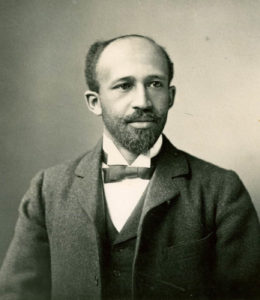Thoughts on Progress I

All those who have the ability to learn and experience are capable of progress; all humans have the potential to experience. In the same respect that progress is possible because all humans can learn and experience, the state and pace of progress may often depend on the environment in which one is able to learn and experience. Because of the environment one must live in, they may not be able to focus completely on their forward experiencing of life in the way they desire. Similarly, those who can enable themselves to experience may face rapid progress in their own work—that being said, I personally do not believe that an individual is completely bounded by the environment they are born into or must live in; people can have the will to overcome their respective environments.
There are two situations which accurately represent the slow and rapid sides  of progress: when one is unable to learn and experience what they desire because they are prevented by an external or internal force—external force being the actual physical environment and internal force being their mentality affected by their environment—much like the character Josie in W.E.B Du Bois’ The Souls of Black Folk: Of the Meaning of Progress, and those who are enabled by their environment to experience and use that experience and henceforth progress. In the case of progress, the teacher from the third chapter of The Souls of Black Folk might serve as an excellent example of someone who was enabled by his environment to move forward and continue experiencing.
of progress: when one is unable to learn and experience what they desire because they are prevented by an external or internal force—external force being the actual physical environment and internal force being their mentality affected by their environment—much like the character Josie in W.E.B Du Bois’ The Souls of Black Folk: Of the Meaning of Progress, and those who are enabled by their environment to experience and use that experience and henceforth progress. In the case of progress, the teacher from the third chapter of The Souls of Black Folk might serve as an excellent example of someone who was enabled by his environment to move forward and continue experiencing.
Du Bois’ book, The Souls of Black Folk chapter III serves as an excellent  depiction of the environmental impact on progress. At the beginning of the chapter, we are introduced to a teacher who has had the opportunity to move on his own and pursue teaching through an organization under the label “Teacher’s Institute”. Following the completion of his training, he goes on a hunt for work and finds himself in a small farm town in Tennessee, where the people are dependent on intensive labor and see much more value in that as opposed to education or academia—this time period and town are the environmental factors that might make it difficult for those who wish to pursue an education. Soon into the teacher’s time at this small town, the author introduces the children in the town who are given the initial opportunity to learn by their parents/guardians. Of those adolescents, the teacher discovers one particular girl he believes truly desires to learn named Josie.
depiction of the environmental impact on progress. At the beginning of the chapter, we are introduced to a teacher who has had the opportunity to move on his own and pursue teaching through an organization under the label “Teacher’s Institute”. Following the completion of his training, he goes on a hunt for work and finds himself in a small farm town in Tennessee, where the people are dependent on intensive labor and see much more value in that as opposed to education or academia—this time period and town are the environmental factors that might make it difficult for those who wish to pursue an education. Soon into the teacher’s time at this small town, the author introduces the children in the town who are given the initial opportunity to learn by their parents/guardians. Of those adolescents, the teacher discovers one particular girl he believes truly desires to learn named Josie.
Ultimately, we slowly witness the children’s parents pull them away from academia as they prioritize farm work and labor, which in their eyes is the most effective act to take and will have a more immediate impact on their lives. This prioritization of quick labor puts the children in a situation where even though the education is offered, should they decide they want it, they have to choose the action that appears it will bring in the most and quickest results: work and labor. After a time-skip in the story, we come to see that most of the children were unable to move on from that small town and lives or continuous labor-intensive work. An extreme to this inhibition of progress as a result of environmental circumstances can be especially observed with the future of a particular student. When the teacher returns several years later, he comes to discover that his favorite student Josie has passed away, unable to progress as a result of the town’s way of life.
Progress Today?
While I believe the environment has no complete control over someone’s  desire and ability to experience and grow, it certainly has some positive and negative impact in how we are able to do so, as observed in both the teacher of The Souls of Black Folk chapter and the young girl named Josie—that being said, the ability to overcome or take advantage of one’s environment does not makes progress any less difficult.
desire and ability to experience and grow, it certainly has some positive and negative impact in how we are able to do so, as observed in both the teacher of The Souls of Black Folk chapter and the young girl named Josie—that being said, the ability to overcome or take advantage of one’s environment does not makes progress any less difficult.
The teacher is excellent example of someone who was able to take advantage of his environment in order to progress and pursue teaching; he did not allow himself to be halted by an environment that was not completely advantageous for him and eventually found in that environment to pursue his desires in academia. The fact that he was an African American in the late 19th century and still able to move forward through all the negativity and prejudice proposed against the African American community is an extraordinary and commendable feat—he was both in a disadvantageous environment and also in a situation where he could take advantage of and progress.
Along with the teacher’s own progress, I believe that our society has improved exponentially from the period where people of colour were placed in non-advantageous environments and negative movements against them. Our society is by no means perfect or right, and the impacts of these movements from the past are still alive, but I believe that a large portion of our community has been trying to move forward that and become more inclusive, thoughtful, and caring. Given the knowledge of the difficult and impactful environments that many people have been, it pushes the question of why people who have the opportunity to take advantage of their environment fail to do so.
I believe it important that people apply themselves given the chance—allowing oneself yourself to work and escape procrastination are essential, especially when faced with the difficult history of progress. If given the opportunity to learn and experience, it is important that one not impair themselves and utilize their experience and learning opportunities effectively—prioritization against procrastination is important.
**Of course, I acknowledge the difference in environment from today and a century ago and understand the shift in work habit and prioritization. After thinking about the movement in The Souls of Black Folk and reading other books like Howard Zinn’s: A People’s History of the United States, which discusses the social turmoil behind the “march of progress” and tells America’s story from the point of view of America’s women, factory workers, African-Americans, Native Americans, the working poor, and immigrant laborers. I am curious of how the acknowledgement of history can affect that.

To be continued in Thoughts II.
Bibliography
BOIS, WEB DU. The Souls Of Black Folk. BLURB, 2019.
Zinn, Howard. A People’s History of the United States: 1492-Present. Routledge, Taylor Et Francis Group, 2015.
